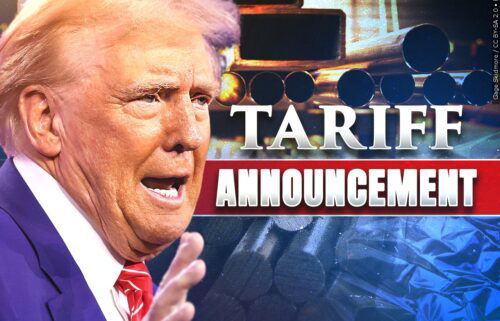App makers blast Apple and Google in Senate hearing on app store policies
Apple and Google faced a battery of accusations on Wednesday from prominent app developers, including Spotify and Tile, who alleged that the large tech platforms have abused their dominance and harmed competition.
In a lengthy Senate hearing, the app makers said Apple and Google’s rules surrounding in-app payments and app updates allow the tech giants to choke off rival services, and that they engage in retaliation when app developers refuse to comply.
The occasionally tense showdown highlighted how antitrust scrutiny of Apple is ramping up after more than a year of similar focus on its peers such as Amazon, Facebook and Google. And lawmakers were clear that the hearing would serve as a springboard for legislation to rein in large tech platforms.
Much of the hearing zeroed in on Apple’s treatment of app makers, largely because of Apple’s closed ecosystem that prohibits the installation of iOS apps from anywhere but the Apple app store.
This week, Apple introduced a new product known as the AirTag, a small device that can be used to locate missing items. Tile, which makes a competing product, accused Apple of giving AirTag an unfair home-court advantage by not allowing Tile devices to use the same advanced, ultra-wideband frequencies to communicate with iPhones that AirTag uses.
Apple chief compliance officer Kyle Andeer testified that AirTag is a “very different product” and that the company is excited to compete in that market.
Criticism of Apple only intensified from there. Others witnesses blasted Apple’s practice of charging providers of digital goods and services a 30% commission on in-app transactions. Apple has argued its fees go toward making sure the iOS ecosystem is secure and trustworthy for users.
Jared Sine, chief legal officer of Match Group — which owns Tinder — said app store fees now account for the company’s single largest expense, topping $500 million a year. (If a user purchases a premium subscription through Tinder’s iOS app, for example, 30% goes to Apple.)
“That’s $500 million that could be going back into the pockets of everyday consumers or deployed to hire employees or invested in new innovations,” Sine said.
Companies that try to find alternatives to Apple’s in-app payment system — such as by urging users to pay directly on an app’s website — quickly find themselves on Apple’s bad side, said Horacio Gutierrez, Spotify’s chief legal officer.
“We couldn’t even email our users to tell them about a way to upgrade” that didn’t involve paying through Apple, Gutierrez said, calling Apple’s contractual restrictions a type of “gag order.”
App developers that cross the tech giants are fearful of retribution, the app makers said. Sine testified that on the eve of the hearing, Google contacted Match Group asking for an explanation of its coming testimony.
Sen. Richard Blumenthal called Apple and Google’s conduct “patently indefensible,” and upon hearing Sine’s testimony, told subcommittee chair Sen. Amy Klobuchar he believes Google’s call was a case of intimidation that should be investigated by the Senate.
“That’s the plan,” Klobuchar responded.
Wilson White, a senior director of public policy at Google, testified that he disagreed with Sine’s characterization of the call.
“I respectfully don’t view that as a threat, and we would never threaten our partners,” he said.
Apple later responded to Spotify’s claims of unfair retaliation — such as allegations that Spotify was denied promotional placement on the app store due to its criticism of Apple — by citing Spotify’s immense business success.
“We’ve been supporting these businesses,” Andeer said. “There’s no evidence of retaliation.”
Andeer also defended Apple’s 30% commission structure, saying the company chose from the start to apply the fees to digital goods and services and that most app developers pay nothing at all.
“We now have a marketplace in which we have 1.7 million apps,” he said. “Eighty-four percent of them pay nothing.”
Apple is set to go to trial next month against Epic Games, the maker of the hit video game “Fortnite,” in a closely watched case on app store fees.
But Sen. Mike Lee, the ranking member of the panel, challenged Apple to explain why some services, such as Uber, are excluded from the commission requirement while online dating apps like Tinder were still subject to it.
Apple struggled to persuade Lee of the distinction, arguing that Uber does not provide a digital good or service because it involves consumers calling a driver for physical transportation. By contrast, with online dating or ebook purchases, Andeer said, “all of the experience is contained within the four corners of the device.”
That still didn’t make sense to Lee or to Sine, who argued that app store operators like Apple and Google “have essentially taken the internet and moved it into the app stores.”
“They’ve set up their gateways, they’ve set up their toll booths; you’ve got to pay the toll if you’re a digital good and service,” said Sine. “They give everybody else access onto the freeway, and what we’re saying is, why isn’t the freeway the same for everyone?”


